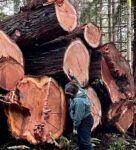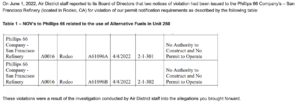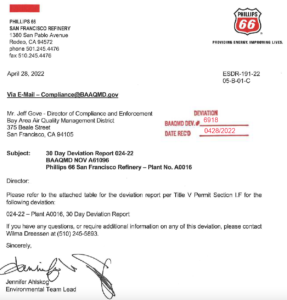In late July 2022 the administration of California Governor Gavin Newsom sent a letter to the California Air Resources Board (CARB) that included a list of priorities of what the Governor wants to see elevated in the development of the 2022 Scoping Plan. In California the ‘Scoping Plan’ is the legislatively mandated process for sketching out an ostensibly economy wide ‘road map’ for climate planning and greenhouse gas emissions reductions for the next five years, or even longer.
In the letter the Governor continued to express support for an oil and gas industry wish list of ‘carbon capture’ and ‘carbon removal’ technologies — though importantly the governor is also calling for long demanded and far too long delayed setbacks between oil and gas drilling operations and residences, businesses and schools.

Rhetoric about ‘nature based solutions’ obfuscates the reality of ongoing aggressive logging in California’s forests.
The letter also repeats popular refrains about the importance of ‘natural and working lands’ for future ‘carbon sequestration,’ while failing completely to address the lawless logging resulting from the crisis of governance in the forests of the state, or the recent studies demonstrating that, because of rising temperatures and intensifying drought, the carbon removal capacity of terrestrial ecosystems, such as forests, is in increasing jeopardy.
Dramatically, the letter also makes a bolded demand that CARB “work with relevant agencies to accelerate refinery transitions away from petroleum to the production of clean fuels.”
The term “clean fuels” certainly has a reassuring sound to it. The experience of our organization in monitoring the development of industrial bioenergy projects and policy teaches us that the utilization of the euphemistic term “clean fuels” by Governor Newsom is meant to distract attention from the acute controversies swirling around the flawed governance of the conversion of refineries in the San Francisco Bay Area to manufacturing liquid biofuels.
There are two significant refinery conversion projects happening on the shores of the Bay, the Marathon-Neste joint venture at the Tesoro refinery in Martinez, and the Phillips 66 refinery in Rodeo. The refinery conversion projects are similar in nature, in that the repurposing of the refineries is designed to utilize existing fossil gas intensive hydrocracking technology for processing largely soy, canola and distilled cooking oil into ‘drop in’ liquid biofuels such as “Renewable Diesel” and “Sustainable Aviation Fuel.” Regardless of similarities, both projects are also distinct, in style and content — and in governance.
One governance distinction of the Phillips 66 refinery conversion project is that in the spring of this year Phillips 66 was issued two Notices of Violation (NOVs) from the Bay Area Air Quality Management District (BAAQMD) for the operation of a unit that was making “Renewable Diesel” without appropriate permits. BAAQMD is the local air quality authority that retains significant regulatory responsibility over the liquid fuel processing refineries and other industrial infrastructure in the SF Bay Area.
In July of 2021 a small group of organizations sent a letter to BAAQMD informing the agency that residents and stakeholders attentive to operations at the Phillips 66 refinery in Rodeo had noticed new activity in one of the units, and that apparently Phillips 66 had already begun processing soy into the ‘drop in’ liquid biofuel Renewable Diesel.
Remarkably enough, in December 2021, even though the public comment period on the Draft Environmental Impact Report required under the California Environmental Quality Act for the Contra Costa County permitting of the Phillips 66 refinery conversion project had not yet closed, Phillips 66 was already applying to CARB for Low Carbon Fuel Standard (LCFS) credits for making Renewable Diesel from soy and canola oils. Watchdog organizations like Biofuelwatch noticed in the Phillips 66 application for LCFS credits that they admitted to having started processing soy in April 2021.
CARB was indifferent to comments on the Phillips 66 LCFS application that there were obvious violations of the basic precepts of governance and environmental permitting if Phillips 66 was already making liquid biofuels, and getting LCFS credits for them, if the permitting of the refinery conversion was still underway.

Local activists finally got word from air quality authorities that Phillips 66 had been issued NOVs.
After months of agency silence local stakeholders received the information that BAAQMD had at the end of March 2022 issued two Notices of Violation to Phillips 66 regarding the unit making Renewable Diesel from soy and canola, for ‘No Authority to Construct” and for “No Permit To Operate.”
To secure more information Biofuelwatch filed a California Public Records Act request with BAAQMD. Though our organization was informed that our request for substantive information regarding the NOVs would not be addressed until the investigation of the matter is completed, the agency did provide Biofuelwatch the response that Phillips 66 provided BAAQMD after receiving the NOVs. This response, articulated in the 30 Day Deviation Summary Report for the BAAQMD Title V Permit for the refinery, basically claims that the refiner retains the right to process whatever feedstock they choose in that unit under question, and that regardless Phillips 66 was filing the appropriate permits anyhow.

Biofuelwatch received the ‘deviation report’ that Phillips 66 provided BAAQMD in response to the NOVs.
The Notices of Violation from BAAQMD have happened in the context of the final approval by the Contra Costa County Board of Supervisors in early May 2022 of the Phillips 66 refinery conversion project, at a hearing that also included the final approval of the Marathon-Neste joint venture at the Tesoro refinery in Martinez. Both of those permits are now being litigated, on the grounds that Contra Costa County failed to fulfill their responsibilities under the California Environmental Quality Act to insure that the impacts of the projects are being adequately identified, analyzed and addressed.
Of course, the irregular and possibly illegal operation of the unit that was already processing liquid biofuels was brought to the attention of the Contra Costa County authorities during the environmental review process, but that evidence was ignored and dismissed. Adding surrealism to the situation is that two of the members of the Contra Costa County Board of Supervisors which approved the Phillips 66 refinery conversion project are also members of the board of directors of BAAQMD. The Board of Directors of BAAQMD is informed about this situation of jurisdictional cross purposes, but as of this writing had taken no action to publicly address these irregularities or the NOVs.
From the state level, to the air district level and clear to the county and local level the irregularities in the processes of environmental review and regulation merit scrutiny. The seemingly generous hands being dealt by authorities to refiners like Phillips 66 to achieve industry objectives at the expense of the public interest are intensifying community concerns about the irregular governance of these unprecedented industrial bioenergy projects.
